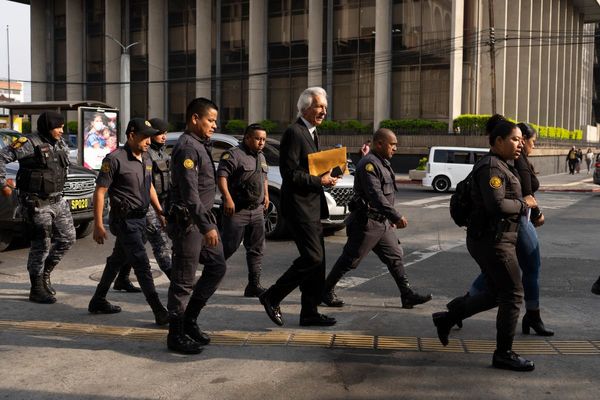
Australia’s peak renewable industry groups say paying coal and gas plants to remain in the electricity market as back-up capacity would be “a retrograde step”, and a lengthy debate about changes could stall much-needed new investment.
Kane Thornton, the chief executive of the Clean Energy Council, said his organisation had “real concerns” about the proposal by the Energy Security Board for a so-called capacity mechanism to be introduced after 2025. Such a scheme would charge consumers for idle generation or supply to reduce risks of potential power shortages, as experienced across eastern Australia this month.
“If the capacity mechanism supported coal and gas then we think that’s problematic,” Thornton said. “It’s a retrograde step.”
His counterpart at the Smart Energy Council, John Grimes, said it was important the industry did not get railroaded into changes that could be achieved with greater benefit and less cost by other means.
“What is the need for [a capacity market] and how would it happen?” Grimes said. “It’s the wrong policy debate at the wrong time.”
Energy issues have become more prominent after the grid struggled to meet demand during the first big cold snap of winter. Ailing coal-fired power plants combined with high-cost gas to trigger market price caps that, in turn, prompted the national electricity market to be suspended for the first time its 24-year history after generators withdrew about 5,000 megawatts of capacity.
The federal energy minister, Chris Bowen, has been quick to add his support to the creation of a capacity market since taking over in late May. He has dismissed concerns it would end being a “coal-keeper” that paid fossil fuel plants to linger longer than needed.
“Ministers were unanimous a couple of weeks ago that a capacity mechanism is necessary and important,” Bowen told reporters last week. “We want [it] to primarily focus on new technology and storage.”
The Australian Energy Market Operator will on Thursday release the 2022 integrated system plan, which sets out a roadmap for the most efficient development of the national energy market.
It is expected to confirm the so-called step-change scenario as the most likely path ahead. In a draft version of the plan, that scenario has all coal-fired power gone by 2043.
The trajectory for the national electricity market that Aemo sees as most likely has coal gone entirely by 2043. pic.twitter.com/e5RkVI9zZY
— Peter Hannam (@p_hannam) June 19, 2022
The ESB has sought to blunt concerns by different states that a capacity market would hinder their own emissions reduction plans by suggesting such a scheme could be modified for each region.
Opponents of the mechanism say different states going different ways would only add to complexity.
“Our preference is always for that single nationally coordinated policy,” Thornton said. Such a policy should include setting an energy storage target as proposed by the Victoria Energy Policy Centre.
Australia’s power system transition to low-emissions energy is highlighted in AEMO’s latest Generation Information update, which shows grid-scale solar, wind and battery storage account for 88% of proposed projects totalling 150 gigawatts in the National Electricity Market.
— AEMO (@AEMO_Energy) June 27, 2022
“It’s likely to take a number of years to actually work through the deep implementation details of the capacity market,” Thornton said. “Many of these issues are live now. We need to accelerate investment right now and not have it slow down and pause for multiple years.
“All other things being equal, it does create anxiety and, you know, adds to the uncertainty already facing investors.”
Other industry groups, such as the Australian Energy Council – which represents major generators – say they are still working on their response to the ESB’s capacity market.
The ESB is taking submissions on its design paper until 25 July and will put its final recommendations to the energy ministers by the end of the year.







